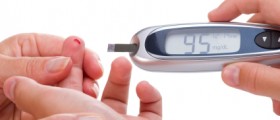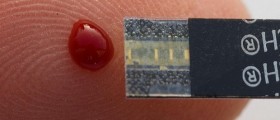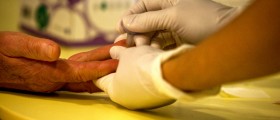
Diabetes mellitus is one of the most serious illnesses and it may cause serious disability and a lot of complications. There are two main types of diabetes mellitus and they develop due to numerous factors such as genetics, environmental factors, improper or poor diet, obesity, intake of certain medications, infections etc.
Once the disease is confirmed patient's diet is restricted and he/she is prescribed appropriate medications. If one sticks to recommended regime (proper diet, regular physical activity and intake of medications) he/ she may bring the disease under control and maintain optimal levels of glucose in the blood. However, if one is not disciplined there may be a chance for serious complications such as diabetic ketoacidosis, hyperglycemia etc. Even people who follow doctor's orders may have difficulties in regulation of sugar in blood.
Inadequate level of sugar in blood is associated with many additional illnesses of the heart, kidneys, vascular system etc. The damage can be detrimental and cause serious loss of the affected organ's function.
Presentation of Uncontrolled Diabetes
The most common consequence of uncontrolled diabetes is the increase of sugar in blood (hyperglycemia). Furthermore, patients complain about increased urine output. They lose too much glucose with urine which can be recorded if urine is laboratory examined. One more problem is increased thirst. Patient lose weight suddenly and without any obvious reason. In severe cases they may complain about fatigue and nausea. They may be disorientated and their skin can be dry. If glucose stays high for a longer period of time patients may develop diabetic ketoacidosis.
Diabetic ketoacisosis can affect both, people with previously undiagnosed diabetes and those who are known diabetics bur are not disciplined and do not take their therapy regularly. Diabetic acidosis results from the increased level of sugar in blood and leads to vomiting, dehydration, deep grasping breathing, confusion and may eventually lead to coma. Treatment must be urgent and it includes intravenous fluids (which correct dehydration) and insulin (which corrects hyperglycemia and prevents production of ketone bodies).
Severe Uncontrolled Diabetes and Potential Complications
Patients suffering from diabetes generally have problems with circulation, to be more precise the disease affects small vessels. This may eventually cause serious damage to many organs and organ systems such as kidneys, brain, heart, peripheral tissues of the limbs etc. Apart from microangiopathies, patients suffering from diabetes (especially if it is not controlled) may eventually develop macroangiopathies and atherosclerosis. Progressive atherosclerosis accelerates formation of plaques inside the arteries and this may eventually lead to heart attack, stroke and a serious damage to the retina (and consequent loss of vision).
So if one is suffering from diabetes he/ she must thoroughly monitor the level of sugar in blood and keep it under control. Medications must be taken on regular bases and if the effects of current medications are not satisfying enough the doctor may change the therapy. Unfortunately, even if the disease is properly managed there is a chance of some of the previously mentioned complications.

















Your thoughts on this
Loading...